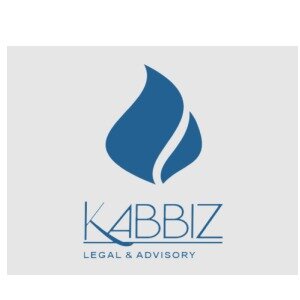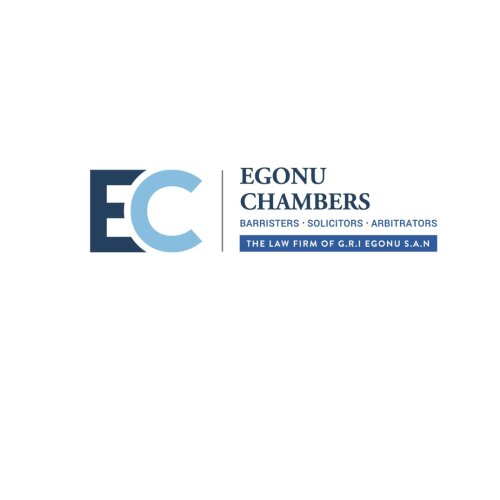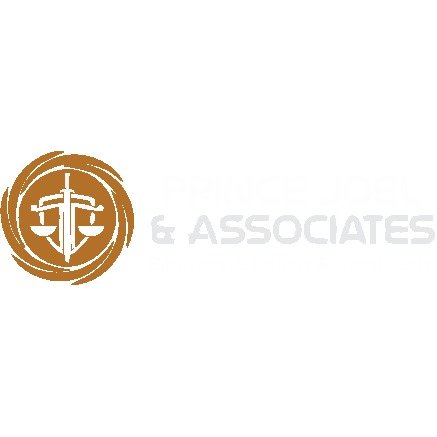Best Banking & Finance Lawyers in Onitsha
Share your needs with us, get contacted by law firms.
Free. Takes 2 min.
List of the best lawyers in Onitsha, Nigeria
Nigeria Banking & Finance Legal Questions answered by Lawyers
Browse our 3 legal questions about Banking & Finance in Nigeria and read the lawyer answers, or ask your own questions for free.
- My bank mistakenly credited my account and I withdraw the money as I was expecting money at that time. I wasn't contacted by the bank till after 3-4weeks. Now the banks are blocking my BVN and putting my account on watch list. How do I resolve this? T
- Bank negligence, wrong crediting of my account.My bank mistakenly credited my account, and I withdrew the money as I was expecting money at that time. I wasn't contacted by the bank till after 3- 4 weeks. Now the banks are blocking my BVN and putting my account on the watch... Read more →
-
Lawyer answer by Afe Babalola & Co. (Emmanuel Chambers)
Even though it was the bank’s error, withdrawing money that was mistakenly credited to your account—without reporting it—is legally considered a crime under Nigerian law. It's classified as: Theft (under the Criminal Code) Or Obtaining by false pretense (under the...
Read full answer - recover money sent to a scammer
- Is there any way to recover money sent to a scammer through their bank account details, and if yes, what are the steps to be taken?
-
Lawyer answer by Kabbiz Legal & Advisory
Hello, We are sorry that you sent your hard-earned funds to a scammer who has defrauded you of the same. As to your question, the short answer is yes, you can recover the money you sent to a scammer. There...
Read full answer - I need an advise on handle the organisation I borrowed money from
- The organisation I borrowed money to finance my business are on my neck and I don't know what to next
-
Lawyer answer by Advocare Populi Law Firm
We need to see the documents evidencing the transaction to be able to advise properly.
Read full answer
Nigeria Banking & Finance Legal Articles
Browse our 3 legal articles about Banking & Finance in Nigeria written by expert lawyers.
- The Step-By-Step Procedure of How to Apply for Microfinance Bank License Online in Nigeria
- The Central Bank of Nigeria (CBN) has launched a new online platform for submitting microfinance bank (MFB) license applications, known as the CBN Licensing, Approval, and Other Requests Portal. The new online platform replaces the previous laborious approach of physically submitting MFB license applications to the CBN. These are the... Read more →
- How to Establish a Microfinance Bank in Nigeria
- Microfinance Bank (MFB) is any company licensed by the Central Bank of Nigeria (CBN) to carry on the business of providing financial services such as savings and deposits, loans, domestic funds transfer and non-financial services to microfinance clients.What are the specific objectives of the new microfinance policy?The specific objectives of... Read more →
- Banking Services in Nigeria: A Look at The Legal Remedies Available to Customers
- Who are bank customers?Generally, a customer of a bank is someone who has an account with a bank, or without having an account the relationship of banker and customer exists. In the latter case, some money transactions must connect the banker and the customer but must arise from the nature... Read more →
About Banking & Finance Law in Onitsha, Nigeria
In Onitsha, Nigeria, Banking & Finance Law refers to the legal regulations and standards that govern the operations and activities of banks, financial institutions, and individuals involved in financial transactions. These laws exist to ensure transparency, consumer protection, and fair practices in the banking and finance sector.
Why You May Need a Lawyer
There are several situations where seeking legal advice from a lawyer specializing in Banking & Finance Law in Onitsha, Nigeria can be beneficial. Some common situations include:
- Disputes with banks or financial institutions regarding loans, mortgages, or credit agreements.
- Dealing with bankruptcy, insolvency, or debt restructuring.
- Obtaining regulatory approvals for establishing or licensing a financial institution.
- Complying with legal requirements related to anti-money laundering, financial crimes, and fraud prevention.
- Resolving issues related to securities, investments, or capital markets.
Local Laws Overview
When it comes to Banking & Finance Law, it is important to be aware of the key aspects of local laws in Onitsha, Nigeria. Some relevant points include:
- The primary regulator for banking and finance activities in Nigeria is the Central Bank of Nigeria (CBN).
- The CBN formulates and implements monetary policies, regulates commercial banks, and supervises financial institutions in the country.
- Other regulations governing the sector include the Banks and Other Financial Institutions Act (BOFIA), the Nigerian Deposit Insurance Corporation (NDIC) Act, and the Money Laundering (Prohibition) Act.
- Local laws aim to safeguard customers' interests, promote financial stability, and ensure the integrity and transparency of the banking and finance sector.
Frequently Asked Questions
Q: What are the requirements for obtaining a commercial banking license in Onitsha, Nigeria?
A: To obtain a commercial banking license, you must meet the criteria set by the Central Bank of Nigeria (CBN), which includes fulfilling capital adequacy requirements, having a sound management team, and meeting other regulatory conditions.
Q: Can a bank freeze my account without notice in Onitsha, Nigeria?
A: Banks in Onitsha, Nigeria have the authority to freeze an account if there are suspicions of fraud, money laundering, or illegal activities. However, they must provide notice and follow the legal procedures outlined in relevant legislation.
Q: What are the rights and protections available to consumers in banking transactions?
A: Consumers in Onitsha, Nigeria have the right to receive fair treatment, transparent information, and protection against unfair practices from banks and financial institutions. In case of disputes, consumers can seek redress through legal channels.
Q: What implications does bankruptcy have on my financial obligations in Onitsha, Nigeria?
A: Filing for bankruptcy in Onitsha, Nigeria can provide relief from overwhelming debt and protect you from creditors. However, the specific implications and consequences vary depending on the circumstances, and seeking legal advice is advisable in such situations.
Q: How can I report suspected financial crimes or unethical practices in the banking sector?
A: If you suspect financial crimes or unethical practices in the banking sector in Onitsha, Nigeria, you can report them to the appropriate regulatory authorities, such as the Central Bank of Nigeria (CBN), the Economic and Financial Crimes Commission (EFCC), or the Nigerian Financial Intelligence Unit (NFIU).
Additional Resources
For further information and assistance regarding Banking & Finance Law in Onitsha, Nigeria, you may find the following resources helpful:
- Central Bank of Nigeria (CBN) - https://www.cbn.gov.ng
- Nigerian Deposit Insurance Corporation (NDIC) - https://www.ndic.gov.ng
- Securities and Exchange Commission Nigeria (SEC) - https://sec.gov.ng
Next Steps
If you require legal assistance in the field of Banking & Finance in Onitsha, Nigeria, it is advisable to:
- Identify a lawyer or legal firm specializing in Banking & Finance Law.
- Schedule a consultation to discuss your specific concerns or legal needs.
- Prepare relevant documents, contracts, or evidence related to your case.
- Ask questions about their experience, fees, and the potential outcomes of your situation.
- Make an informed decision on whether to engage the services of the lawyer or legal firm.
Lawzana helps you find the best lawyers and law firms in Onitsha through a curated and pre-screened list of qualified legal professionals. Our platform offers rankings and detailed profiles of attorneys and law firms, allowing you to compare based on practice areas, including Banking & Finance, experience, and client feedback.
Each profile includes a description of the firm's areas of practice, client reviews, team members and partners, year of establishment, spoken languages, office locations, contact information, social media presence, and any published articles or resources. Most firms on our platform speak English and are experienced in both local and international legal matters.
Get a quote from top-rated law firms in Onitsha, Nigeria — quickly, securely, and without unnecessary hassle.
Disclaimer:
The information provided on this page is for general informational purposes only and does not constitute legal advice. While we strive to ensure the accuracy and relevance of the content, legal information may change over time, and interpretations of the law can vary. You should always consult with a qualified legal professional for advice specific to your situation.
We disclaim all liability for actions taken or not taken based on the content of this page. If you believe any information is incorrect or outdated, please contact us, and we will review and update it where appropriate.
Browse banking & finance law firms by service in Onitsha, Nigeria
Onitsha, Nigeria Attorneys in related practice areas.












